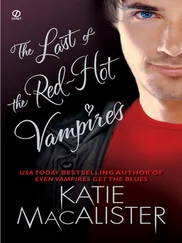And then came the second movement, Israel streaming into Egypt by air and land. A long silence, suspended, all instruments quiet, and then the violent surprise: first air strikes, then machine-gun fire across the desert. Miriam played, caught up in the drama, remembering the conquering of the Sinai. She’d met Isaac during that quick battle. She glanced at him, sitting just to her left, while they reenacted the skirmish with their instruments. He shot a look back at her, and she knew they were both remembering. Ah, the Jews. A tough, smart little army made up of people like them, classical musicians, scholars, scientists, farmers. And they had won!
Then came the third movement, the second wave of Jewish might and cleverness: this was Sasha’s movement, and Jakov’s, the air strikes against Syria, the triumph over Jordan, after the Arab world had been told that Egypt had vanquished Israel. Nasser had lied to them, tricking them into attacking a winning army. Miriam felt the power in the ending of this movement, the strong and certain knowledge that Israel would survive.
And then came the last movement, so soon already. Miriam had never realized how lovely it was: the short, sweet, and yet sorrowful sense of vindication, with its theme of “Yerushalayim Shel Zahav,” the song written by Naomi Shemer, they’d all sung it after the war: Jerusalem of gold, and of bronze, and of light, behold, I am a violin for all your songs. After six days of fighting, one thousand Jews were dead, and many thousand Arabs had been killed. The Jews had taken beautiful Jerusalem from the Jordanians, claimed it as their birthright. Israel was secure. But there was always such a cost. It had been a short but terrifying war, with so much death. Always so much death, with war, whether you won or lost, it was terrible.
When they’d finished, Miriam tucked her violin under her arm. There, they’d played this damn thing for the last time. Rivka, their audience of one, gazed at them all in the light of the candles that stuttered in the breeze.
“Yes,” Rivka said. “Oh yes—” She cleared her throat, pressed her knuckles to her eyes. “That was perfect,” she said. “You played it as I wrote it. No composer can hope for more.”
It was true. They had played it perfectly, and the piece had come to life. Miriam had executed her second-violin part with her jaw clenched on the chin rest, her bow chopping glints of electricity off the strings in the long staccato runs, her fingertips striking the fingerboard with precise deadly blows. She had played her part so well, she surprised herself. A combination of anxiety and fear was a great focuser for the brain and fingers, and for the people in its sphere as well, it seemed. Her virtuosity had forced the other three to meet her there on the plane of pure excellence. Even Jakov, sick as he was. It had always been this way: if one of the quartet played brilliantly, usually Sasha, the other three were spurred to match it. And this time, the brilliant one had been Miriam.
Jakov leaned back in his chair with an expression of stolid exhaustion, his cello lolling between his knees, his hands lax on his thighs with the bow dangling from loose fingers. He had rallied enough to play this difficult, demanding piece. He’d done it for them all.
Isaac put his viola into its open case and went over to sit on the couch with Rivka. Miriam sensed, once more, the two of them enfolded in something private. She had a feeling that something was going on between them, she wasn’t sure what. Maybe now that Larry was gone, they were finding each other, finally, just as Miriam and Sasha had. Miriam supposed she was happy for them, but she felt other things about it too.
“Those were such different times,” said Sasha. “We were so young, our country was young. We were right, and many of us believed that God was on our side.”
“I never believed in God,” said Miriam. “But yes, I believed in our right to win that war.”
Jakov coughed wetly. “You don’t anymore?”
“Of course I do,” said Miriam. “But it’s all so much more complicated now, isn’t it? All tangled up in violence for its own sake, not enough will from the leadership on both sides to resolve their differences and coexist. It’s all bullying and lies.”
“It was simple back then,” said Sasha. He cocked his head at Miriam. “Wasn’t it? Even killing, dropping bombs, I didn’t question it. We were defending our right to exist. They wanted to exterminate us, but we were strong and smart and we fought for our right to live in our own country.”
“Survival,” said Jakov. “That was it. That’s what we were fighting for.”
“The will to survive is eternally strong,” said Miriam. “But it’s how you do it that matters. And I’m not thinking only of Israel. Yes, you stay alive, but at what cost? What have we become, in Israel?”
“We’ve done things we should never have done,” said Jakov. “Nothing makes that right.”
They fell into a tense silence, thinking their separate thoughts. Sasha lifted his violin to his chin and plucked his strings, fiddled with a tuning peg, plucked again. As he played the opening bars of “Papirosen,” Jakov lifted his bow and joined in with a rhythmic bass line and sang in his rich, clotted voice that always reminded Miriam of a mournful, passionate walrus: “A kalte nacht, a nebldike finster umetum, shteyt a yingele fartoiert, un kukt zikh arum.”
Miriam joined in with her clear soprano, two octaves higher, a little wobbly now, “Fun regn shteyt im nor a vant, a koshiki trogt e rim hant…”
It was an old wartime song about an orphaned boy standing on a corner in the ghetto selling cigarettes in the cold rain, trying not to starve and die like his sister, who had been his only hope and companion in the world. Miriam’s voice was that of the ghostly sister, chiming in with the boy’s plaint from beyond death, to bolster him. “Zol der toyt shoyn zumen oykh tzu mir” : Let death come already for me, too.
Isaac roused himself and picked up his viola while Miriam lifted her violin to her chin again, and they all stopped talking and gave themselves over to their history, their shared knowledge, a musical conversation in four parts they’d held for so many years together. They played “Ale Brider,” not a classical piece they’d performed together but a folk song, the music of their parents and grandparents, the music from the shtetls and ghettoes.
During “Flatbush Waltz,” Kimmi entered the room with her accordion and joined in. Then two musicians from the jazz band, the clarinet and trombone players, arrived in time to play “A Yiddishe Mama” and “Raisins and Almonds.” Miriam was impressed that these goyishe kids were familiar with these old klezmer songs, or maybe they were picking them up by ear. They played with such openness and verve, all of them.
More people arrived, doors and windows were opened, furniture moved to the corners of the room, and people danced. Old people in pajamas chimed in on the songs while younger people watched, listened, clapped and cheered. Allison, the virtuoso teenager, came in and played a Joplin rag on the upright piano by the balcony doors. Miriam’s heart beat fast with joy, watching her play, and with such chutzpah!
As the music spooled out into the night, people came from all over the ship, thronged the living room, spilled out onto the balconies, looked in the open windows and doors from the catwalk. There were crew and passengers, young and old, all colors and races, dirty, drunk, sweaty, smiling, draped against railings, raucously singing on the balconies, passing bottles around while the members of this impromptu band shouted out songs and keys, launched into them as if they’d all rehearsed together for years, flying into solos, segueing from klezmer to old jazz standards, the whole room alight with candles.
Читать дальше












